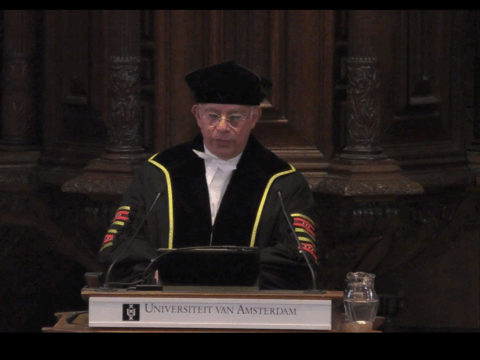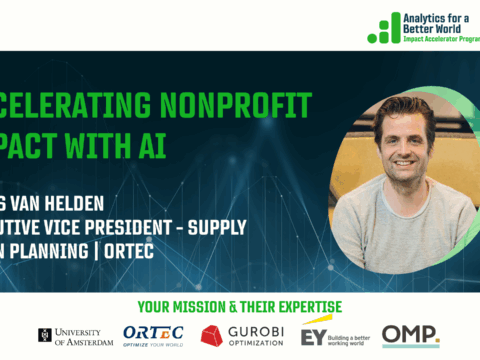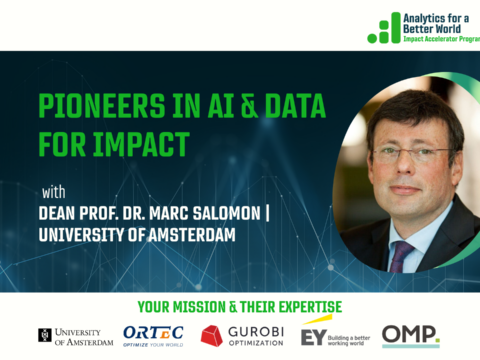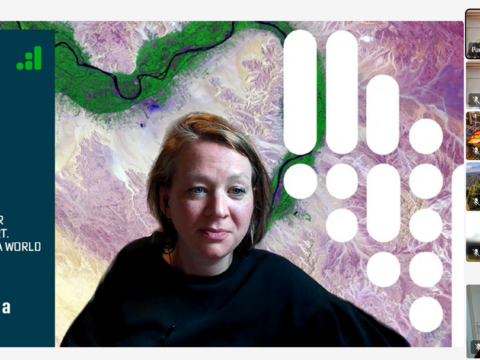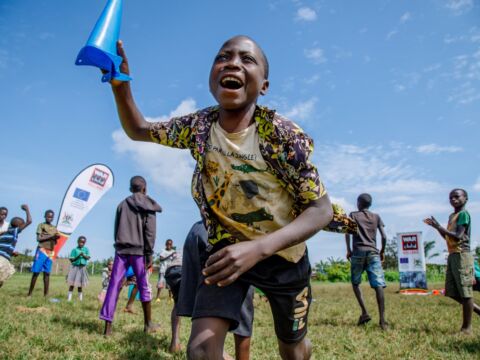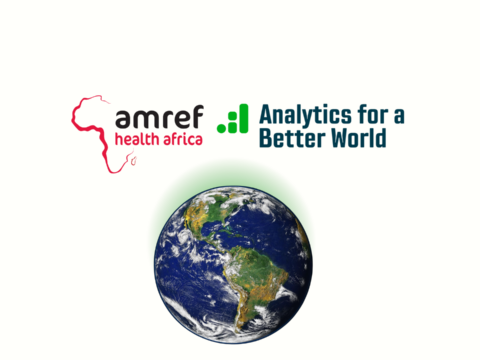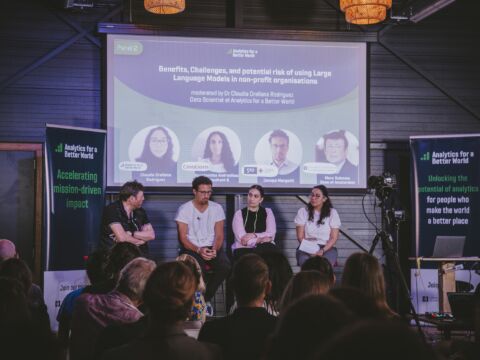War Child
See profileORTEC
See profileFrom Data to Impact: Co-Creating Quality Care with War Child
An Impact Story with War Child, ORTEC, and Analytics for a Better World
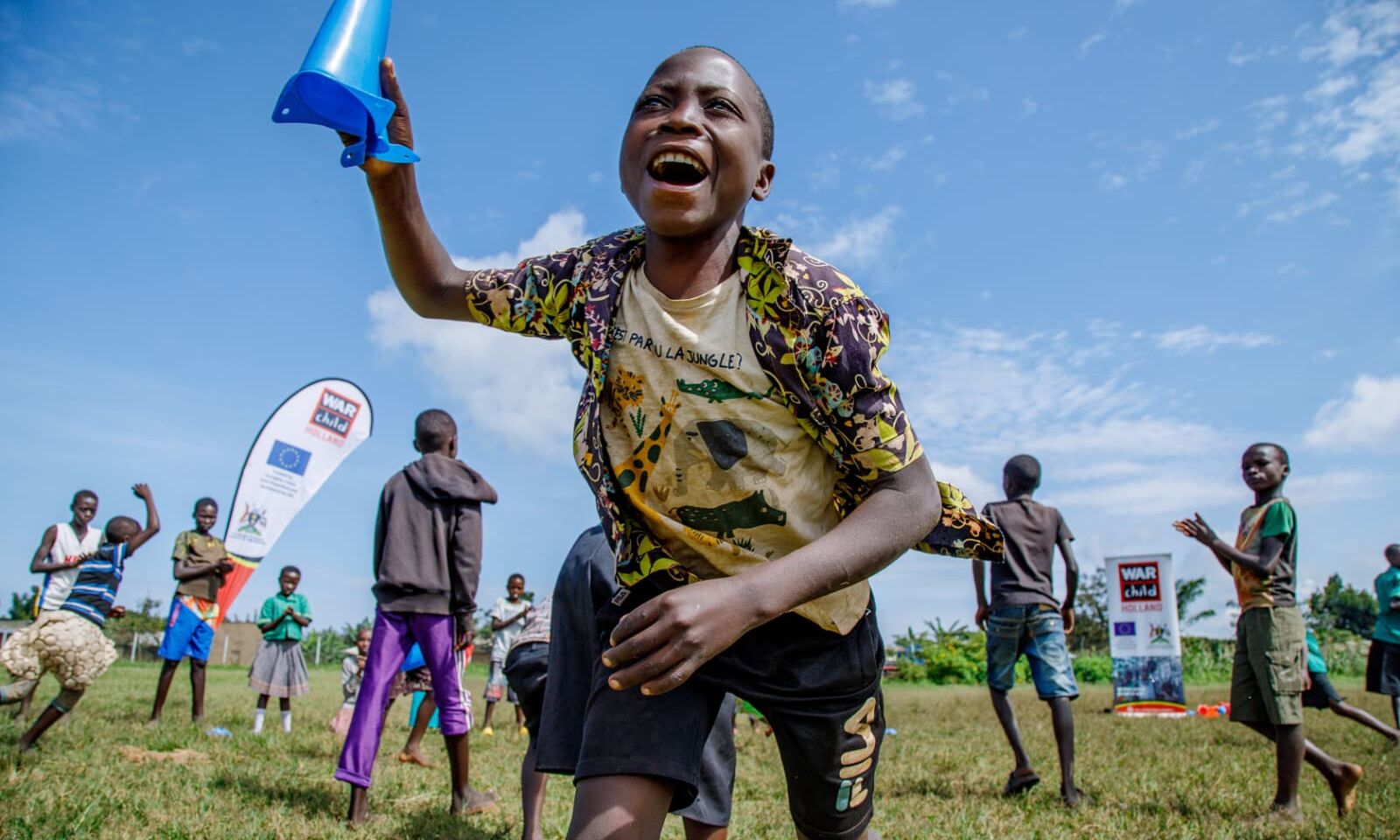
An Impact Story with War Child, ORTEC, and Analytics for a Better World – War Child | ORTEC | At the heart of every impactful partnership lies a shared purpose – and the collaboration between ORTEC, Analytics for a Better World (ABW), and War Child is a testament to just that. Rooted in a mission […]
At the heart of every impactful partnership lies a shared purpose – and the collaboration between ORTEC, Analytics for a Better World (ABW), and War Child is a testament to just that. Rooted in a mission to bring high-quality care to children affected by conflict, this project showcases what’s possible when technical minds and humanitarian hearts come together.
The Challenge: Scaling Impact with Confidence
War Child, a global NGO devoted to the well-being, mental health, education, and protection of children in conflict zones, has spent over a decade developing evidence-based methodologies (EBMs) designed to uplift children and caregivers, regardless of context. The impact of the EBMs on children and their caregivers is measured using relevant sector-specific outcome and impact level indicators, such as positive changes in wellbeing or reduction in stress. These EBMs are rigorously tested with research methods, including randomized controlled trials, but scaling them through global partnerships introduced a new challenge: how to continue ensuring impact and quality at scale.
Enter the ‘Quality of Care’ framework. Designed to replace rigorous on-the-ground assessments with smart, scalable proxy indicators – attendance, competency, and fidelity – the framework needed a system that could better facilitate robust data collection and give both War Child and its partners real-time insight into their impact. In this way, War Child can ensure they are having a positive effect on children and caregivers, and they can learn from the experience of partners and adapt their ways of working to support them better.
The targets?
- Defining and prioritizing use cases related to quality-of-care data
- Developing the most urgent cases
- Increasing data literacy and overall maturity
A challenge tailor-made for a data-driven solution.
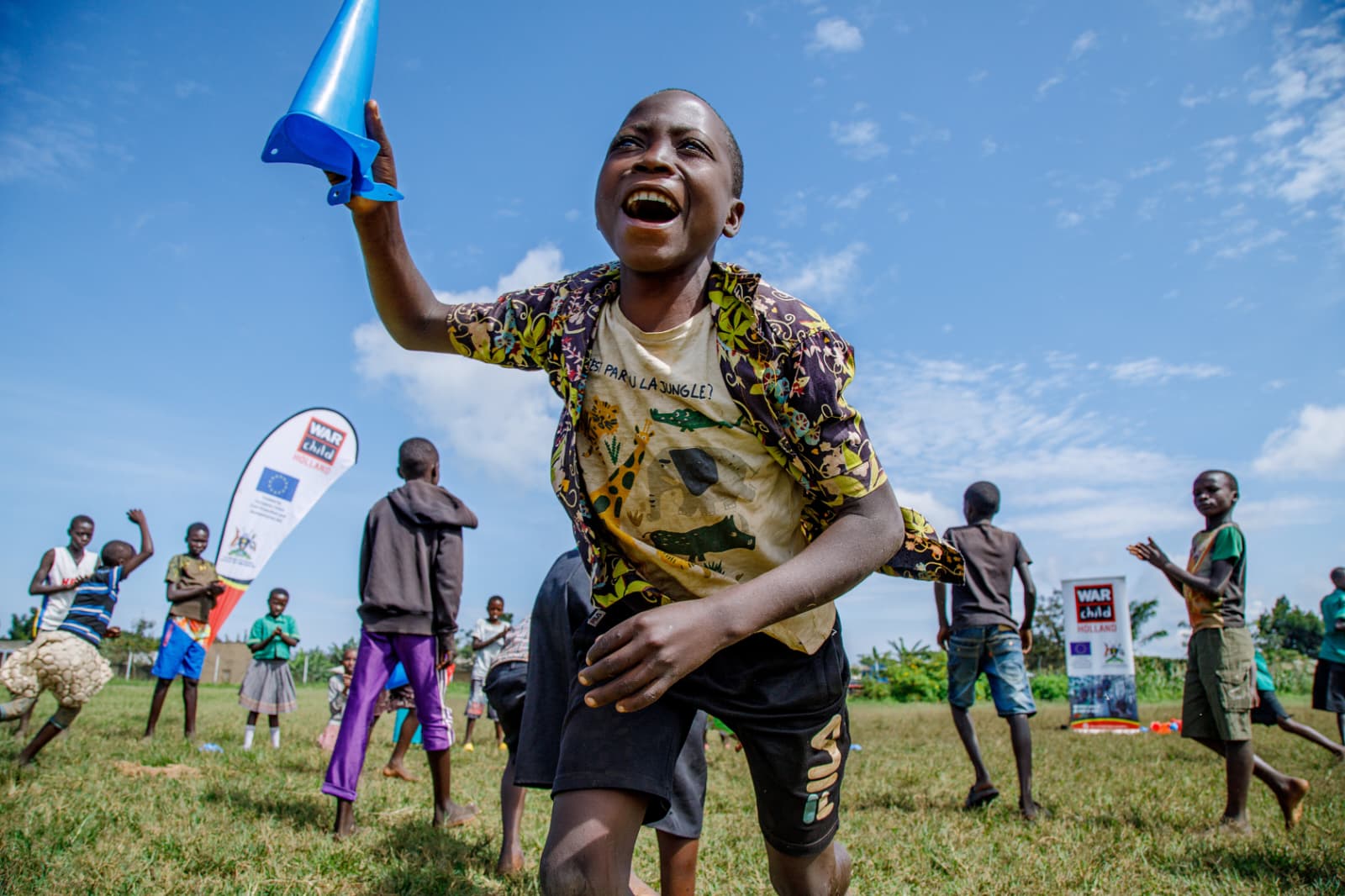
The Collaboration: Technical Expertise Meets Purpose
ABW acted as a partner that could hold War Child’s hand as they embarked on their journey of strengthening their data literacy and developing their first and most important use case. With its unique understanding of and rich experience with the nonprofit and humanitarian sectors, ABW stepped in and connected War Child with technical experts like those from Pipple and ORTEC. Frank Tabak, a software manager from ORTEC, described their contribution as “mainly responsible for the technical part,” which involved two pivotal tasks: crafting a data strategy executive report and building a data pipeline for a proof-of-concept to support the Quality-of-Care Framework.
This wasn’t just another project. It was a purpose-driven endeavor. Working in a non-technical environment posed its challenges – the kind that forced contributors out of their usual bubble and into deeper conversations about impact, access, and usability. “It felt very rewarding to be able to contribute to a goodwill cause like War Child,” Tabak shared.
However, it was more than kind, rich, and technical expertise that consolidated the partnership between War Child, ABW, and ORTEC. War Child was also excited about the opportunity to join a network of practitioners and benefit from ABW’s Annual Conference, highlighting the meaningful impact analytics have on non-profit projects and various research cases across the sector and connecting impact-makers that can reciprocally support innovation.
The Breakthrough: A New Perspective on Data
As the collaboration unfolded, something unexpected happened. The initial assumption – that data collection would be a burden to partners – was turned on its head. The first pilots revealed something quite the opposite: partners were energized by the possibilities. Access to near-real-time quality data not only empowered better decision-making but also opened doors for fundraising and advocacy.
The project became more than building tools; it was about shifting perspectives – for War Child, its partners, and the contributing tech teams.
Learning and Co-Creation: Building a Data Culture
This project wasn’t just a delivery; it was a co-learning journey. For War Child, it revealed the importance of defining clear use cases before building solutions. Starting small and focusing on bite-sized, practical pilots created momentum and clarity – making what once felt overwhelming entirely manageable.
This did not just create a difference for their case challenges. It created momentum with donors, excited by the possibility offered by near-real-time impact data. The LEGO Foundation invested in the development of the quality-of-care data system. Thanks to their support, War Child is now designing a system which works for partners, taking into account all the contextual challenges related to data gathering and dissemination and digital connectivity.
For ORTEC, it was a reminder of the power of mission-driven work. Collaborating with an organization like War Child demonstrated how data can do more than optimize operations – it can amplify impact, ensure accountability, and ultimately, change lives.
It’s a way for us – ORTEC, and by that my colleagues and I – to contribute to organizations with another focus than just business growth
Accelerate your Impact with Co-created Data Solutions Now
All the input you need to understand your data challenges and opportunities is already in your organization. Start by having conversations with your teams on the pain points they have in relation to data. What data do they need? What are the gaps? These conversations will reveal the outlines of relevant use cases. By letting your teams lead the way, you will get buy-in and commitment for the development of relevant use cases, processes and tools. A good partner can provide additional expertise to guide these conversations and shed light on possible technical solutions. It is crucial to also have the support of senior management and the board. They need to understand why they need to invest time and money in a data solution. Make a clear case for the return on investment which reflects their own concerns or ambitions around efficiency, impact and income. Data analytics are no longer unique to the realm of the MEAL and ICT teams. The whole organization – and partners – can benefit in different ways from the experience, the learnings and of course, the results.
– Laura Miller, War Child Alliance Director, Programme Quality, Scaling & Advocacy
Why It Matters: A Call to Contribute
Projects like these show the transformative power of cross-sector collaboration. As the ORTEC software manager put it, “It’s a way for us – ORTEC, and by that, my colleagues and I – to contribute to organizations with a focus other than just business growth.” And the ripple effects are real.
This is an open invitation to data scientists, engineers, and professionals from all backgrounds: your skills are needed not only by companies and clients, but by mission-driven organizations striving to solve some of the world’s most challenging problems.
When we work together, co-create solutions, and remain open to learning, impact is inevitable.
A special thank you for all the project contributions to Ruud Mullers, CTO&Data Scientist at Pipple
